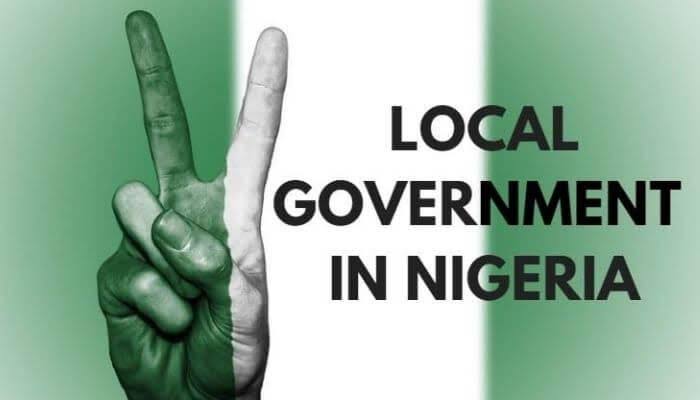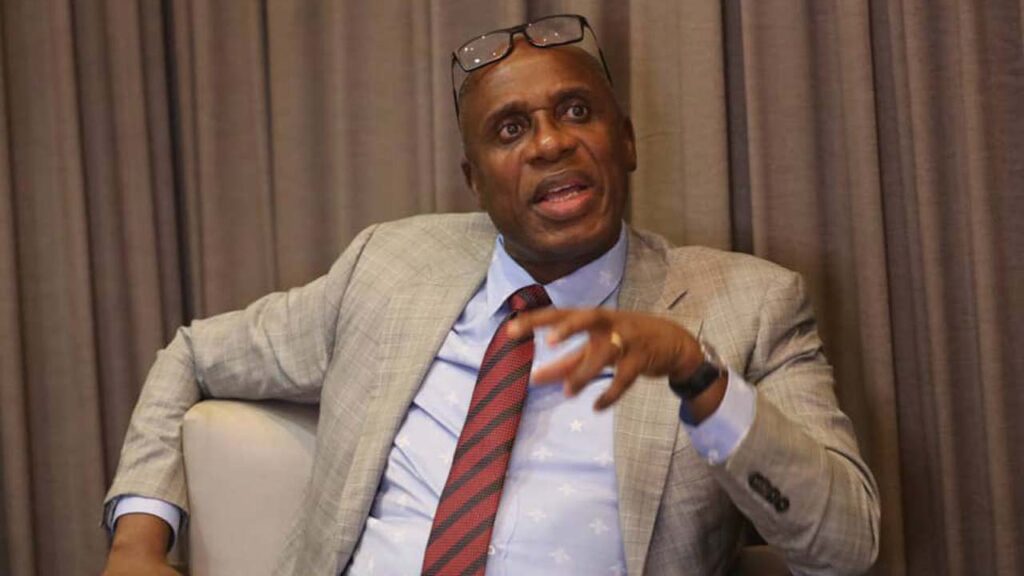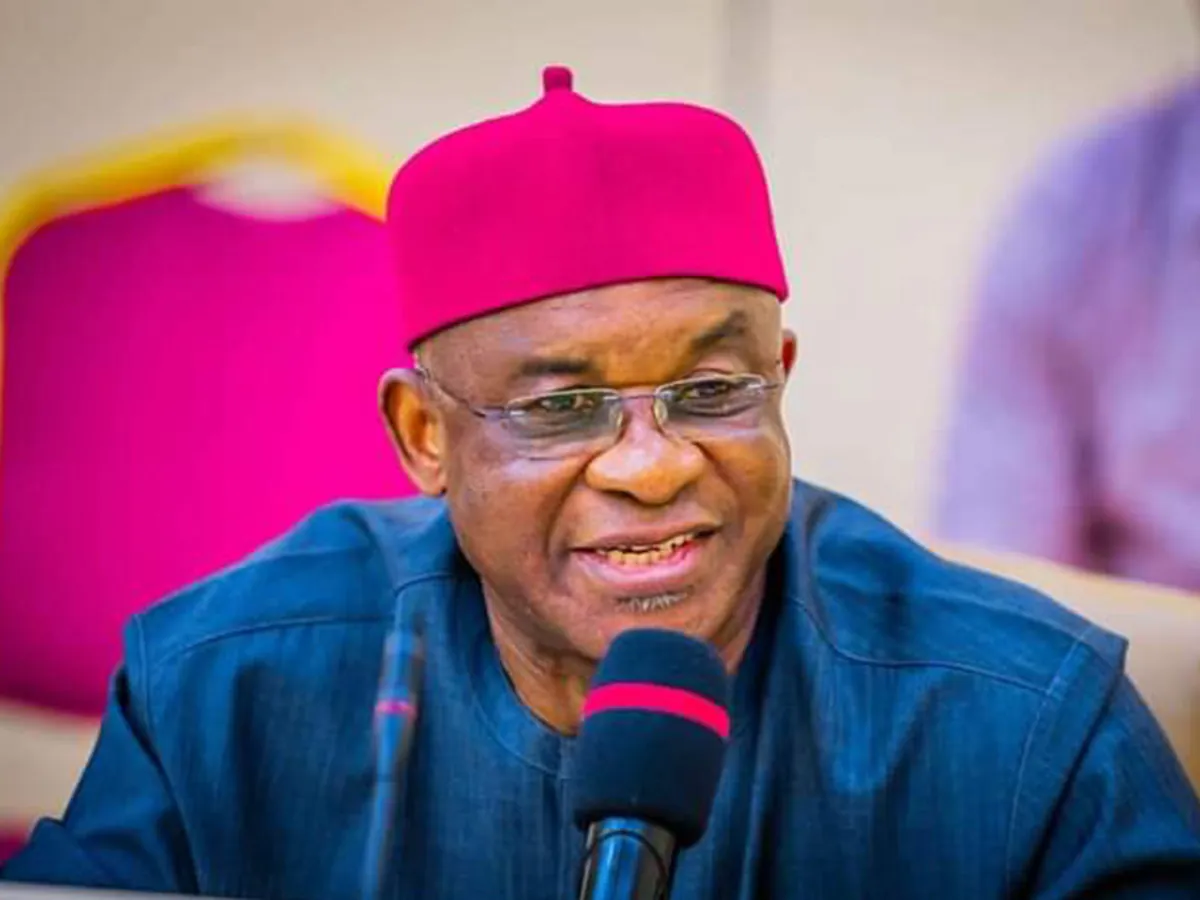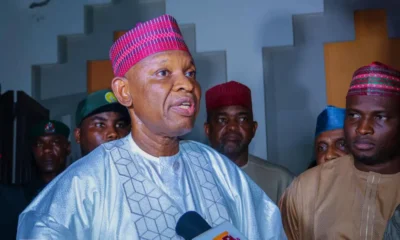Politics
FAAC: LGAs get N1.42 trillion in five months in 2024

Here are some details about FAAC allocation to LGAs in 2024
– Total amount allocated to LGAs in Nigeria in the first five months of 2024: N1.42 trillion
– Increase in allocation compared to the same period in 2023: 47%
– Increase in allocation from January to May 2024:
– January: 30%
– February: 52%
– March: 54%
– April: 69%
– May: 38%
– Top five beneficiaries:
– Alimosho: N9.27 billion
– Ajeromi/Ifelodun: N7.42 billion
– Kosofe: N7.33 billion
– Mushin: N7.24 billion
– Oshodi/Isolo: N7.21 billion
Politics
2027: “If I do not End Corruption in Nigeria within One Month, I Will Tender my Resignation,” — Former Governor Ameachi Vows

Former Minister of Transportation, Rotimi Amaechi, has pledged sweeping reforms if elected Nigeria’s president in 2027, including changing the constitution and eradicating corruption within his first month in office or resigning.
Speaking on Friday during an X Space session titled Weekend Politics, the former Rivers State governor said he would replace the current indigeneship system with citizenship rights.
“If I do not end corruption in Nigeria within one month, I will tender my resignation,” Amaechi declared, challenging current FCT Minister Nyesom Wike to walk through the streets of Port Harcourt to prove who is healthier and more beloved by the people.
Amaechi accused some powerful figures of frequently visiting the Central Bank of Nigeria (CBN) to steal public funds, lamenting that such resources, if properly utilised, could solve the country’s security and economic crises. He also described INEC Chairman Mahmood Yakubu as the “w%rst” in Nigeria’s history.
On fuel subsidy, Amaechi vowed not to reverse its removal if elected, but promised to channel the savings directly to ordinary Nigerians rather than the elite.
Politics
2027: I started opposition coalition with Fayemi – Rotimi Amaechi

Former Minister of Transportation, Rotimi Amaechi, has disclosed that he and ex-Governor of Ekiti State, Kayode Fayemi, started the opposition coalition.
Amaechi said he and Fayemi decided to expand the opposition coalition to accommodate more people.
The former governor of Rivers State made this public during a chat on an X space titled: “Weekend Politics” on Friday.
The coalition currently has eminent Nigerians like former Vice President Atiku Abubakar, former Kaduna State governor, Nasir El-Rufai; former Secretary to the Government of the Federation, SGF, Babachir Lawal.
Others include Boss Mustapha, former Senate President, David Mark, former Interior Minister, Rauf Aregbesola, former Sports Minister, Bolaji Abdullahi, among others.
The coalition recently adopted the African Democratic Congress, ADC, in its move to unseat President Bola Tinubu.
However, Amaechi said: “Fayemi and I began the coalition discussion, and we subsequently agreed to broaden it so that it would involve more than just the two of us talking about starting a new party.
“We must create a middle class, and put money in the pockets of Nigerians; insecurity will reduce.”
He also disclosed that he became the Speaker of Rivers State at the age of 32 years.
According to Amaechi, he served in that capacity for eight years without being impeached.
“I was the first Speaker at the age of 32 years and led the Rivers State Assembly for 8 years without being impeached,” he added.
Politics
ADC: Why INEC has not recognised David Mark, others

THE reason has emerged why the Independent National Electoral Commission (INEC) is yet to accord recognition to the interim National Working Committee of the African Democratic Congress (ADC) led by former Senate President, Senator David Mark.
Investigations revealed that the erstwhile National Chairman of the party, Ralph Nwosu, in a letter dated July 29, 2025, and addressed to INEC Chairman, Professor Mahmood Yakubu, informed him of resolutions of the National Executive Committee (NEC) of the ADC held on the same date, “which empowers NEC to exercise the powers and perform all the functions of the National Convention pending the next National Convention.”
The NEC at that meeting effected changes in its leadership and informed the INEC so.
The letter to INEC, it was learnt, listed the names of 44 new national officers of the party. Listed among them by Ralph Nwosu were Senator David Mark, Rauf Aregbesola, and Dr Mani Ibrahim, as National Chairman, National Secretary and National Treasurer, respectively.
Checks by Saturday Ekwutos on the INEC website, however, revealed that the commission still lists Ralph Nwosu, Alhaji Sai’d Baba Abdullahi and Mr Cavin Alagoa as National Chairman, National Secretary, and National Treasurer of the ADC, respectively. The website also lists Mrs Ifeyinwa Ntima as National Financial Secretary.
A source within INEC who spoke with Saturday Tribune in confidence explained why the electoral umpire was yet to accord official recognition to the David Mark-led interim leadership despite the formal notification by the party.
The source, who acknowledged receipt of the letter written by Ralph Okey Nwosu and Alhaji Sai’d Baba Abdullahi, the immediate past National Chairman and National Secretary, respectively, noted that the commission was yet to recognise Senator Mark and Aregbesola as the new National Chairman and Secretary because the letter dated July 29, 2025, was not properly written.
The source said: “The letter only listed 44 names of new national officers without their signatures. It is proper that we have in our custody specimens of their signatures. That’s when we would act on their letter.”
Asked if the commission was reluctant to accept the new leadership due to the ongoing tussle within the party, the INEC source dismissed the insinuation.
“No, we have nothing against the process. In fact, we were present and monitored the process where those resolutions were taken,” the source added.
-

 Politics10 months ago
Politics10 months agoMexico’s new president causes concern just weeks before the US elections
-
Business10 months ago
US court acquits Air Peace boss, slams Mayfield $4000 fine
-

 Trending10 months ago
Trending10 months agoNYA demands release of ‘abducted’ Imo chairman, preaches good governance
-
Entertainment10 months ago
Bobrisky falls ill in police custody, rushed to hospital
-
Entertainment10 months ago
Bobrisky transferred from Immigration to FCID, spends night behind bars
-

 Politics10 months ago
Politics10 months agoRussia bans imports of agro-products from Kazakhstan after refusal to join BRICS
-

 Politics10 months ago
Politics10 months agoPutin invites 20 world leaders
-
Education12 months ago
GOVERNOR FUBARA APPOINTS COUNCIL MEMBERS FOR KEN SARO-WIWA POLYTECHNIC BORI













